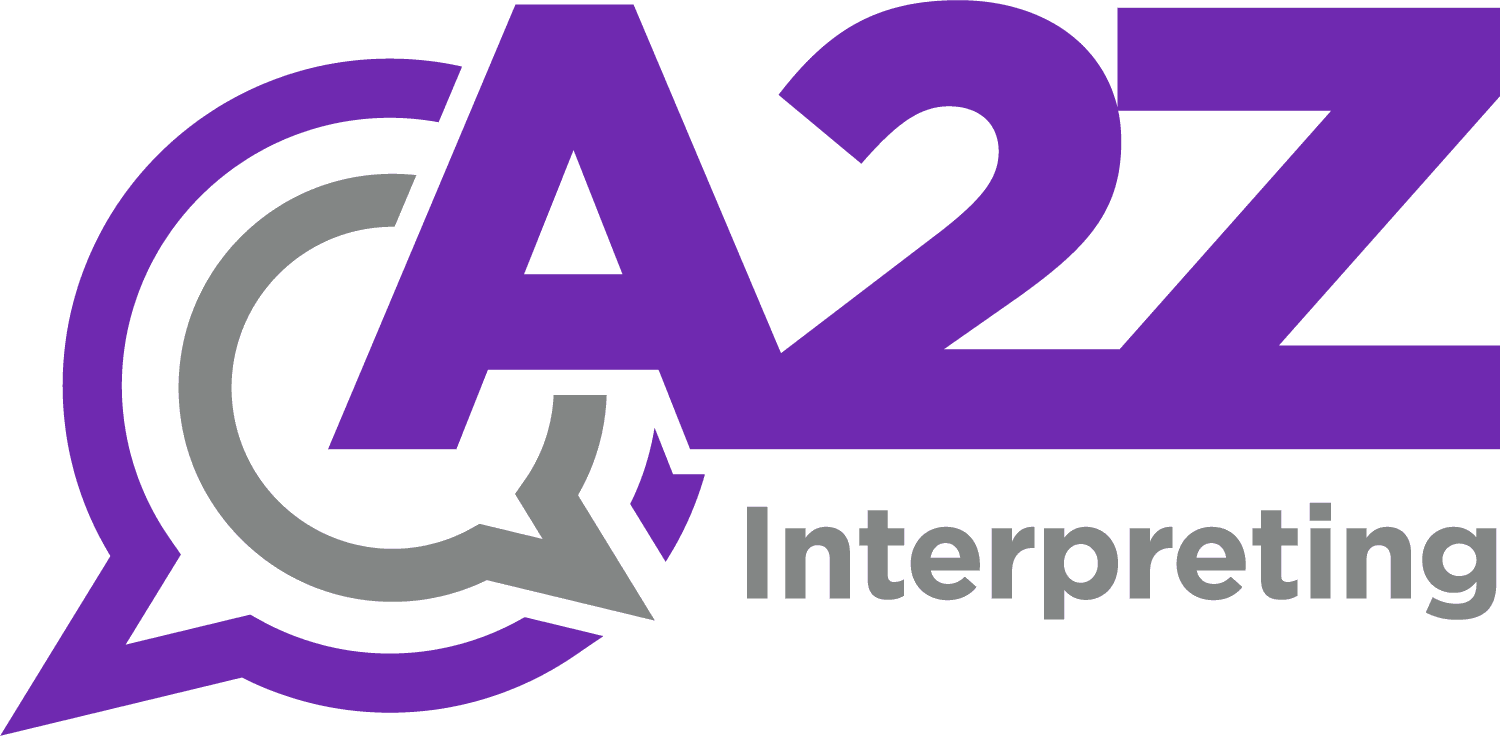Before You Book: What to Know Before Hiring an ASL Interpreter
Imagine this. You’ve planned a community event, invited speakers, promoted it, and just days before, you realize you need an ASL interpreter. You scramble to find one, only to discover no one is available, or the interpreter doesn’t match the setting or the audience.
We see this all the time. Not because people don’t care, but because most don’t realize what hiring an ASL interpreter truly involves.
At A2Z Interpreting, accessibility is never an afterthought. It’s built into the foundation of everything we do.
If you’re getting ready for an event, appointment, or service that requires interpreting, here are three essential things to keep in mind.
1. Not All Interpreters Are the Same
Interpreters have different areas of expertise. Legal, medical, education, mental health, and the arts all call for specific skills, and sometimes, unique certifications.
That’s why we don’t assign interpreters at random. Instead, we match the right one to the right job. For example, a mental health session might require someone with trauma-informed training, while a stage performance needs someone with theatrical experience.
Tip: Start by clarifying your setting, then ask what qualifications are ideal. Early planning ensures a better match.
2. Preparation Makes All the Difference
Interpreting looks effortless when done well, but that fluency comes from prep. Sharing materials like scripts, presentations, or event agendas in advance helps interpreters prepare for complex language and context.
Whether it’s a PTA meeting or a public panel, preparation allows interpreters to deliver more accurate, culturally responsive access.
3. You’re Creating More Than Compliance
Hiring an interpreter isn’t about checking a box. It’s about creating a space where everyone feels they belong.
This involves considering logistics such as lighting and seating, while also ensuring that people can express their communication preferences. It means treat interpreters as professionals and members of your team. A strong rapport helps build trust with your Deaf audience.
Remember: Every small choice can either build or block inclusion.
Avoid These Common Mistakes
Too often, clients run into issues that could have been prevented. Based on our experience, here are three pitfalls to avoid:
- Treating interpreters as general support staff
- Requesting services last-minute
- Assuming any interpreter can handle any job
Here’s the Bottom Line
Hiring an ASL interpreter involves more than just language; it emphasizes connection, equity, and dignity.
If you’re ready to get started, we’ll make the process easy.
✅ Reach out to us and we’ll help you plan with care and confidence.
Need More Tools?
- Download: Working with ASL Interpreters Guide
- Explore more: a2zinterpretingservices.com/asl-interpreter-resources/
